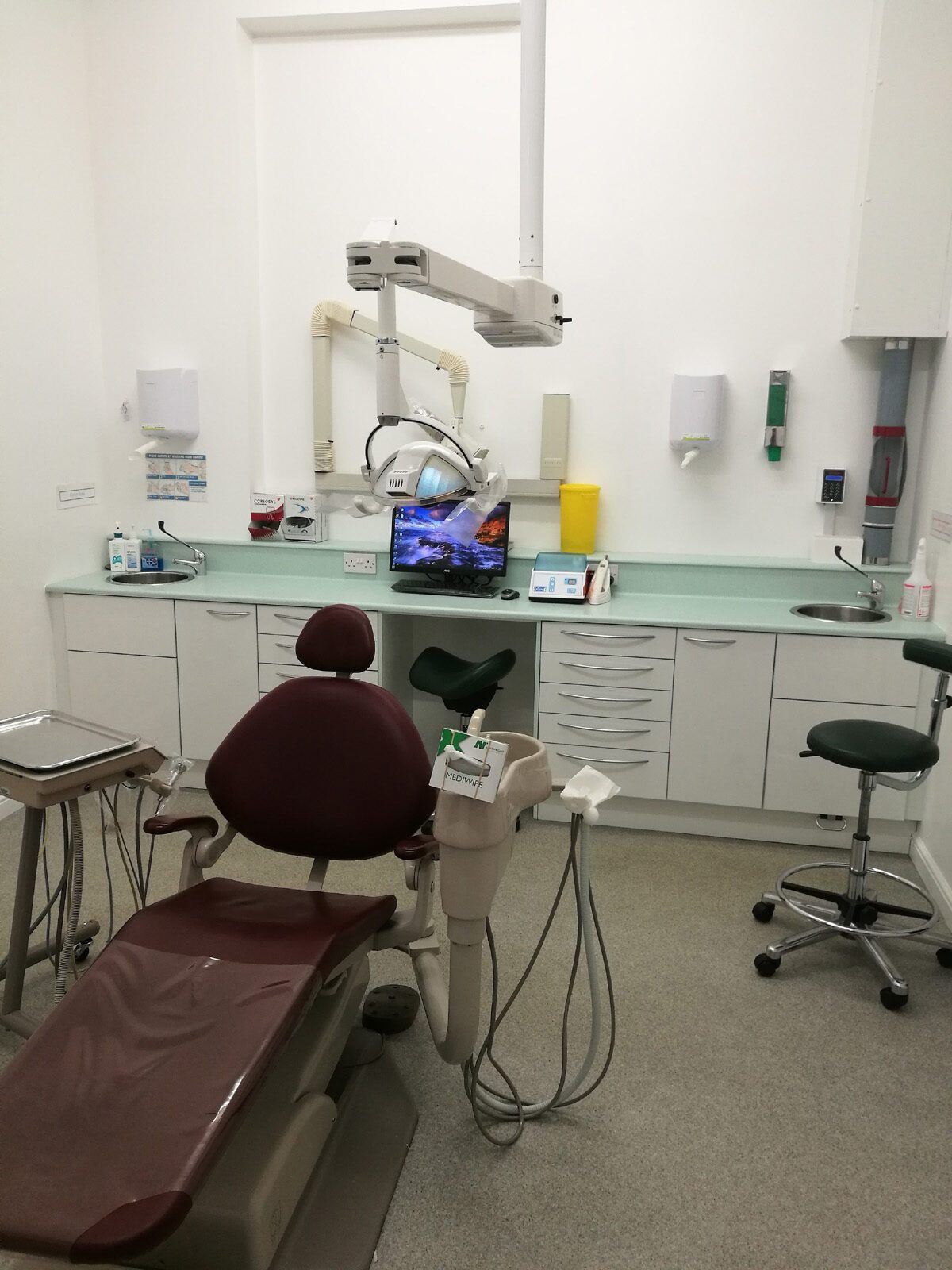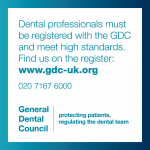Dentures
A denture is a removable replacement for missing teeth and surrounding tissues. Two types of dentures are available, complete and partial dentures. Complete dentures are used when all the teeth are missing, while partial dentures are used when some natural teeth remain.
Partial Dentures
A removable partial denture usually consists of replacement teeth attached to a pink or gum-coloured plastic base, which is sometimes connected by metal framework that holds the denture in place in the mouth. Partial dentures are used when one or more natural teeth remain in the upper or lower jaw.
Immediate Dentures
Unlike conventional dentures, immediate dentures are made in advance and can be positioned as soon as the teeth are removed. As a result, the wearer does not have to be without teeth during the healing period. However, bones and gums shrink over time, especially during the healing period following tooth removal. Therefore, a disadvantage of immediate dentures compared with conventional dentures is that they require more adjustments to fit properly during the healing process and generally should only be considered a temporary solution.
Will Eating with New Dentures Be Difficult?
Eating with new dentures will take a little practice and may be uncomfortable for some wearers for a few weeks. To get used to the new denture, start with soft foods cut into small pieces. Chew slowly using both sides of your mouth. As you get used to new dentures, add other foods until you return to a normal diet. Be cautious with hot or hard foods and sharp-edged bones or shells. And, avoid foods that are extremely sticky or hard.
Will Dentures Make Me Look Different?
Dentures are made to closely resemble your natural teeth so there should be only a small noticeable change in appearance. In fact, dentures may even improve your smile and fill out your facial appearance.
What’s the best way to care for removable dentures?
Removable partial or full dentures require proper care to keep them clean, free from stains and looking their best. For good denture care:
- Remove and rinse dentures after eating. Run water over your dentures to remove food debris and other loose particles. You may want to place a towel on the counter or in the sink or put some water in the sink so the dentures won’t break if you drop them.
- Handle your dentures carefully. Be sure you don’t bend or damage the plastic or the clasps when cleaning.
- Clean your mouth after removing your dentures. Use a soft-bristled toothbrush on natural teeth and gauze or a soft toothbrush to clean your tongue, cheeks and roof of your mouth (palate). If used, remove any remaining denture adhesive from your gums.
- Brush your dentures at least daily. Remove and gently clean your dentures daily. Soak and brush them with a soft-bristled brush and nonabrasive denture cleanser to remove food, plaque and other deposits. If you use denture adhesive, clean the grooves that fit against your gums to remove any remaining adhesive. Don’t use denture cleansers inside your mouth.
- Soak dentures overnight. Most types of dentures need to stay moist to keep their shape. Place the dentures in water or a mild denture-soaking solution overnight. Check with your dentist about properly storing your dentures overnight. Follow the manufacturer’s instructions on cleaning and soaking solutions.
- Rinse dentures thoroughly before putting them back in your mouth, especially if using a denture-soaking solution. These solutions can contain harmful chemicals that cause vomiting, pain or burns if swallowed.
- Schedule regular dental check-ups with your dentist to have your dentures and mouth examined to make sure everything is healthy.
Complete Dentures
This type of denture is used to replace all of the patients missing teeth. It usually consists of an upper and lower set. The denture is made in the lab and takes up to about eight to 12 weeks to construct following several dental visits and process stages. This is also known as a conventional denture.
How Are Dentures Made?
The denture development process takes a few weeks and several appointments. Once your dentist decides what type of appliance is best for you, the general steps are to:
- Make a series of impressions of your mouth and take measurements of how your jaws relate to one another and how much space is between them.
- Create models, wax forms, and/or plastic patterns in the exact shape and position of the denture to be made. You will “try in” this model several times and the denture will be assessed for colour, shape, and fit before the final denture is cast.
- Cast a final denture.
- Adjustments as necessary can be made.
What Do New Dentures Feel Like?
New dentures may feel a little odd or loose for a few weeks until the muscles of the cheeks and tongue learn to keep them in place and you get comfortable inserting and removing them. Also, it is not unusual for minor irritation or soreness to occur and for saliva flow to increase when you first start wearing dentures. These problems can be resolved by a visit to your dentist to make minor adjustment to the denture and will diminish as the mouth adjusts.
You typically should avoid:
- Abrasive cleaning materials. Avoid stiff-bristled brushes, strong cleansers and harsh toothpaste, as these are too abrasive and can damage your dentures.
- Whitening toothpastes. Toothpastes advertised as whitening pastes often contain peroxide, which does little to change the colour of denture teeth.
- Bleach-containing products. Don’t use any bleaching products because these can weaken dentures and change their colour. Don’t soak dentures with metal attachments in solutions that contain chlorine because it can tarnish and corrode the metal.
- Hot water. Avoid hot or boiling water that could warp your dentures.





